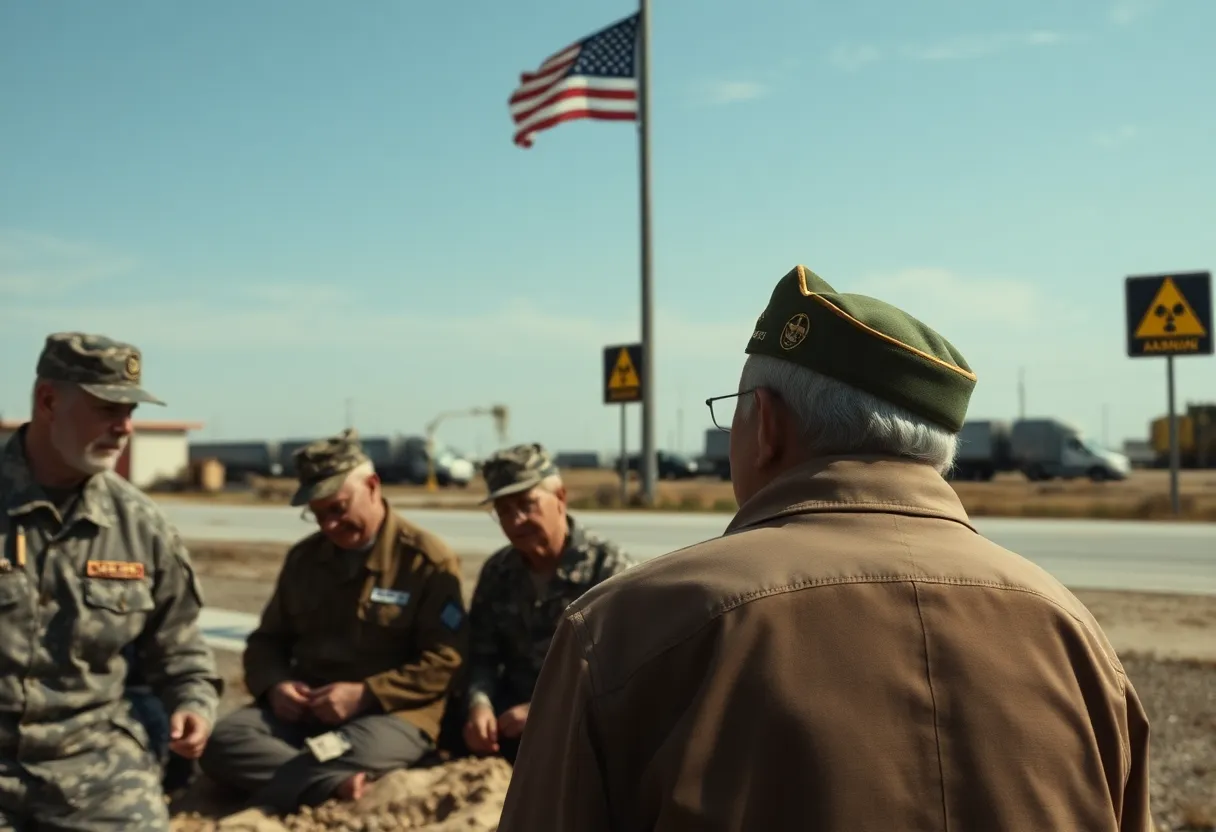News Summary
Veterans face serious health issues from asbestos exposure due to historical military practices. The need for advocacy and support remains critical.
Asbestos Exposure Continues to Haunt U.S. Veterans
Across America, an invisible killer is claiming the lives of \ heroes—our veterans. Asbestos exposure, once considered a miracle material for its insulating properties, is now a silent plague giving rise to serious health issues including mesothelioma and asbestosis. The consequences of long-term exposure to this hazardous material are particularly devastating among those who served in the U.S. Armed Forces.
A Troubling History
Back in the early 1920s, the U.S. military made the fateful decision to mandate the use of asbestos for insulation, a practice that intensified during the tumult of World War II. During this time, asbestos use surged to its peak, continuing unabated until the early 1970s when its catastrophic health effects became public knowledge. Sadly, the damage was already done, with countless veterans unknowingly exposed to this toxic fiber while serving their country.
The Grim Reality of Asbestos Diseases
Asbestos is notorious for causing asbestosis, a serious lung disorder that leads to lung tissue scarring, and a particularly aggressive form of cancer known as mesothelioma. These diseases often take decades to manifest, typically showing symptoms anywhere from 20 to 50 years after initial exposure. This long latency period means that many veterans are only now being diagnosed, often too late for effective treatment options.
Shocking statistics reveal that approximately 30% of Americans diagnosed with mesothelioma are veterans, underlining the tragic intersection of military service and health risks. Between 1999 and 2017, California alone reported a staggering 27,080 deaths attributable to asbestos-related diseases, making it one of the most afflicted states. Home to 1.5 million veterans and over 30 military installations, California remains a focal point for this issue.
Challenges in Diagnosis and Treatment
Diagnosing asbestos-related illnesses is notoriously difficult, often delaying necessary treatment until conditions reach advanced stages. Timely detection is critical, and veterans are being urged to stay vigilant with their health check-ups. The Department of Veterans Affairs (VA) recommends specialized screenings like chest X-rays or CT scans to identify occupational diseases linked to asbestos exposure early on.
Veteran Support Mechanisms
In a vital step for supporting impacted veterans, the VA encourages those diagnosed with asbestos-related cancers to file claims with asbestos trust funds or apply for VA disability compensation. Recent legislative changes through the PACT Act have further simplified the process for veterans battling these conditions, offering them a fighting chance for financial and medical support.
A National Crisis
The epidemic of asbestos-related diseases is not limited to California. Pennsylvania reported an alarming total of 17,717 deaths from 1999 to 2017, placing it among the harder-hit states. The legacy of military bases, particularly those like the Mare Island Naval Shipyard in California, which was instrumental during WWII, displays a tragic relationship of service and suffering that continues to unfold today.
Ongoing Advocacy and Future Outlook
As more veterans face health challenges linked to their service, the need for advocacy remains critical. Proposals, such as a national veterans’ asbestos exposure database, aim to help monitor and treat those affected while highlighting the importance of recognizing exposure and its consequences. The long wait for the VA to acknowledge conditions linked to exposure to various toxins—averaging 31 years—illustrates the urgent need for systemic change within the veteran support framework.
With an estimated 12,000 to 15,000 deaths occurring annually in the U.S. from asbestos exposure, the time for action is now. As the nation grapples with this burden, veterans must not remain in silence. Their brave service deserves the best care, recognition, and remediation for the hazardous conditions they unwittingly faced while serving our great country.
Deeper Dive: News & Info About This Topic
HERE Resources
Concerns Over Asbestos Exposure in Mobile Home Park
Barretts Minerals Moves to Establish Asbestos Trust Fund Amid Legal Troubles
Long-Term Survivors of Mesothelioma: Stories and Lessons
Malignant Mesothelioma Market on the Rise: A Promising Future for Patients
Er-Kim Pharmaceuticals Partners with Polaris Pharmaceuticals to Tackle Mesothelioma
Local Art Scene Vibrant with NEW POP MAX Exhibition
The Asbestos Roof Removal Trial: A Deepening Scandal Unfolds
Corruption Trial of Ace Magashule and Associates Set to Begin in Free State
Major Asbestos Scam Case Involves High-Level Corruption Among Officials
Health Concerns Rise at Grenagh GAA Club Due to Possible Asbestos
Additional Resources
- Triple Pundit: Mesothelioma and U.S. Veterans
- Wikipedia: Mesothelioma
- AOL: Veterans Suffering from Asbestos Exposure
- Google Search: Asbestos Exposure Veterans
- NBC New York: Veterans and Agent Orange
- Google Scholar: Asbestos Health Effects Veterans
- Military.com: Veterans and Toxic Hazards
- Encyclopedia Britannica: Asbestos



















